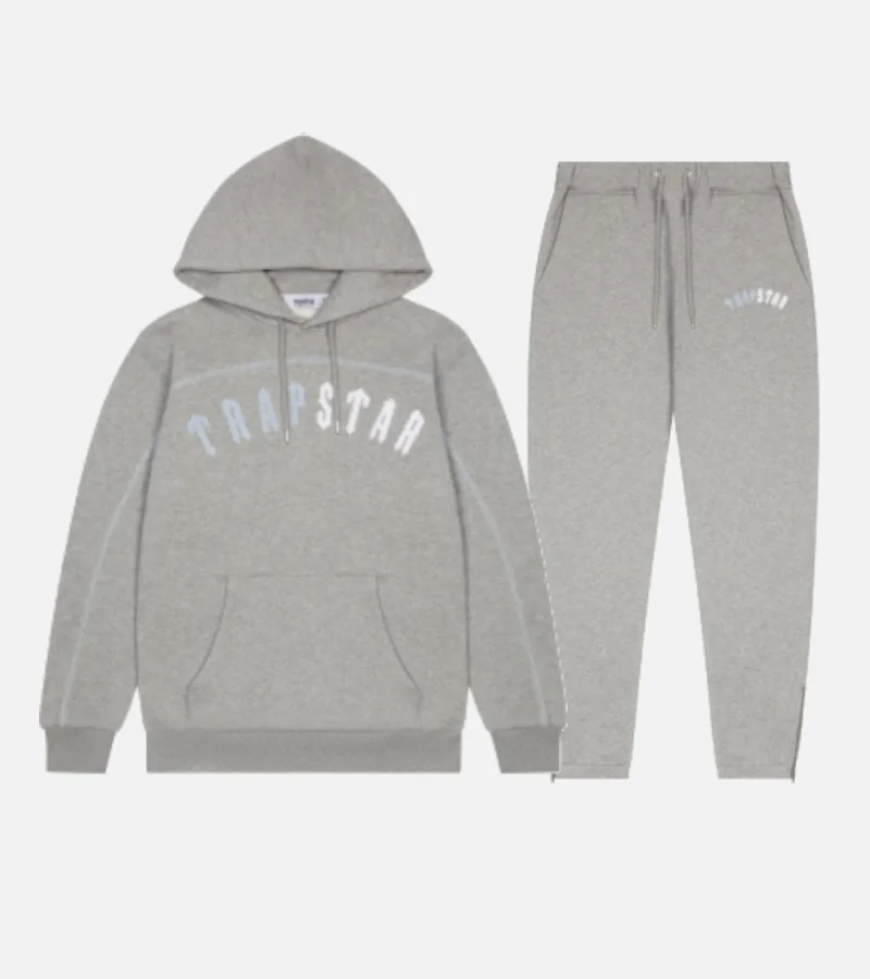Unraveling the Phenomenon of Trapstar Culture
Unraveling the Phenomenon of Trapstar Culture

Introduction
When you think of streetwear, Trapstar is a name that resonates with authenticity and influence. But what exactly is Trapstar? Originating from the gritty streets of London, Trapstar is not just a clothing brand; it's a movement that has taken the fashion world by storm. Let's dive into the origins, evolution, and impact of this iconic brand.
History of Trapstar
Founding and Early Days
Trapstar was founded in 2005 by a trio of friends: Mikey, Lee, and Will. Their shared passion for music, fashion, and street culture sparked the creation of the brand. Starting with screen-printed T-shirts, they quickly gained a following in their local community.
Key Milestones
From selling clothes out of car trunks to opening their flagship store in London, Trapstar has come a long way. Major milestones include collaborations with international brands like Puma and global icons like Rihanna, which have cemented their place in the fashion industry.
The Cultural Impact of Trapstar
Influence on Fashion
Trapstar has significantly influenced urban fashion, blending streetwear with high fashion elements. Their designs often feature bold graphics, cryptic messages, and a rebellious attitude, making them a favorite among young, fashion-forward individuals.
Collaborations with Artists and Brands
Trapstar's collaborations extend beyond fashion, tapping into music and sports. Their partnership with Puma, for instance, brought a unique blend of sportswear and streetwear that appealed to a broad audience. Collaborations with artists like Meek Mill and The Weeknd have also kept the brand relevant and edgy.
Trapstar's Signature Style
Key Elements and Designs
At the heart of Trapstar's style are its signature motifs: the barcode, the red lips, and the "White Noise" TV graphic. These elements symbolize the brand's underground roots and its connection to street culture.
Notable Collections
Some of their most notable collections include the "It's A Secret" collection, which features covert, almost militaristic designs, and the "Hype" collection, which plays with bold colors and graphics, capturing the essence of streetwear.
Celebrity Endorsements
Major Celebrity Influencers
Trapstar's rise can be attributed in part to its celebrity endorsements. Stars like Jay-Z, Rihanna, and A$AP Rocky have been spotted wearing Trapstar, propelling the brand into the mainstream.
Impact on Popularity
These endorsements have not only boosted Trapstar's popularity but also its credibility as a premium streetwear brand. Seeing influential celebrities donning their clothes has made Trapstar a must-have label for many fashion enthusiasts.
Trapstar's Global Reach
Expansion into International Markets
While Trapstar started in London, it didn't take long for the brand to go global. They've expanded into major markets like the United States, Japan, and Europe, each embracing the brand's unique aesthetic.
Popularity Across Different Regions
Different regions have responded to Trapstar in various ways, but the universal appeal lies in its authenticity and connection to street culture. In Japan, for example, Trapstar's edgy designs have resonated well with the local fashion scene.
Marketing Strategies
Use of Social Media
Trapstar has masterfully used social media to build its brand. Platforms like Instagram and Twitter have allowed them to reach a global audience, engage with fans, and create buzz around new releases.
Streetwear and Hype Culture
By tapping into the hype culture, Trapstar has maintained a sense of exclusivity and desirability. Limited drops and collaborations keep the demand high and the brand's followers eager for the next release.
The Role of Music in Trapstar's Identity
Connections with the Music Industry
Trapstar's connection to music is undeniable. From the beginning, the brand has been intertwined with the music scene, particularly grime and hip-hop. This connection has helped them stay relevant and influential.
Influence of Hip-Hop Culture
Hip-hop culture has been a significant influence on Trapstar's designs and branding. The bold, rebellious spirit of hip-hop is reflected in Trapstar's aesthetic, making it a favorite among hip-hop artists and fans alike.
Trapstar and Streetwear Culture
Definition of Streetwear
Streetwear is more than just fashion; it's a lifestyle. It encompasses a sense of community, culture, and identity. Trapstar embodies this definition, creating clothes that are more than just garments but statements of identity.
Trapstar's Place in Streetwear
Trapstar has carved out a niche in the streetwear world, blending high fashion with street culture. Their unique approach has set them apart from other brands, making them a standout in the crowded streetwear market.
Customer Loyalty and Community
Building a Loyal Customer Base
Trapstar has cultivated a loyal customer base by staying true to their roots and consistently delivering high-quality, unique designs. Their customers appreciate the authenticity and the story behind each piece.
Engaging with the Community
Community engagement is a big part of Trapstar's success. They regularly interact with their fans through social media, pop-up shops, and events, creating a strong, connected community around the brand.
The Business Side of Trapstar
Revenue and Financial Success
Trapstar's financial success is a testament to their effective business strategies. From limited drops to high-profile collaborations, their approach has ensured steady growth and profitability.
Business Model and Strategies
Their business model focuses on creating exclusivity and hype. By limiting the availability of their products, they've maintained a high demand and a sense of desirability among their customers.
Challenges and Controversies
Legal Issues and Controversies
Like many successful brands, Trapstar has faced its share of challenges and controversies. Legal issues, such as trademark disputes, have arisen, but the brand has navigated these hurdles with resilience.
Overcoming Challenges
Trapstar's ability to overcome these challenges speaks to their strong brand identity and loyal customer base. They've maintained their integrity and continued to grow despite the obstacles.
Sustainability Efforts
Eco-friendly Practices
In recent years, Trapstar has taken steps towards sustainability. They've begun incorporating eco-friendly materials into their designs and are committed to reducing their environmental footprint.
Future Goals for Sustainability
Looking ahead, Trapstar aims to further enhance their sustainability efforts. This includes exploring new materials, improving supply chain practices, and continuing to innovate in ways that benefit the environment.
Future of Trapstar
Upcoming Projects and Collaborations
Trapstar's future looks bright with several exciting projects and collaborations on the horizon. These include new partnerships with artists, designers, and other brands that will keep Trapstar at the forefront of streetwear fashion.
Long-term Vision
Their long-term vision is to continue evolving while staying true to their roots. Trapstar aims to remain a leading name in streetwear, inspiring future generations with their unique blend of fashion, music, and culture.
Conclusion
Trapstar is more than just a clothing brand; it's a cultural phenomenon that has made a significant impact on the fashion world. From its humble beginnings to its current global reach, Trapstar's journey is a testament to the power of authenticity and innovation. Whether you're a fan of streetwear or just curious about the brand, Trapstar's story is one of passion, perseverance, and cultural influence.
FAQs
What makes Trapstar unique?
Trapstar's unique blend of streetwear and high fashion, combined with its strong ties to music and street culture, sets it apart from other brands.
How did Trapstar become popular?
Trapstar gained popularity through its authentic designs, celebrity endorsements, and strategic use of social media and hype culture.
What's Your Reaction?







.jpg)







![Noots Focus Reviews [Truth Exposed 2025]!](https://news.bangboxonline.com/uploads/images/202501/image_430x256_678e3b94881a1.jpg)
![Vivalis Male Enhancement: The Must-Know Ingredients [2025 Update]](https://news.bangboxonline.com/uploads/images/202501/image_430x256_678e3b54e396c.jpg)










